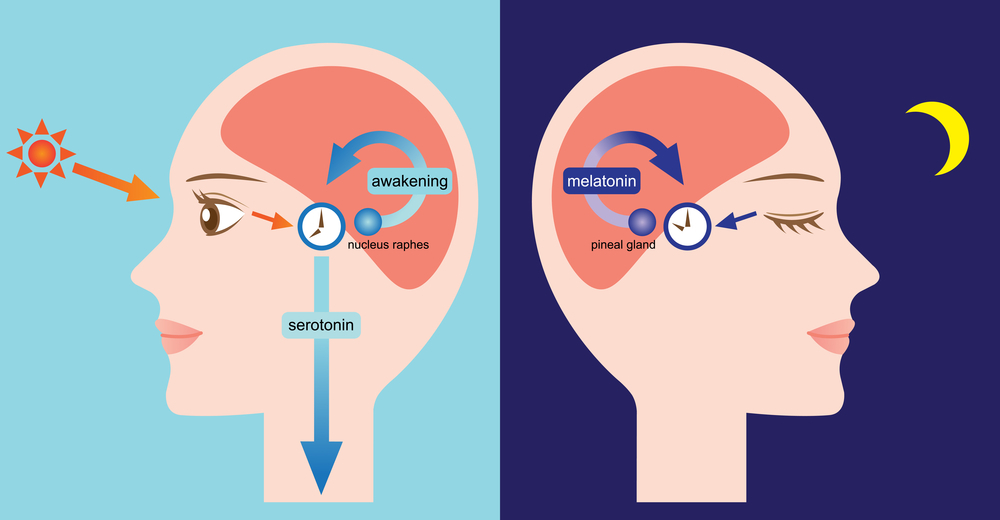Rhythm or Biological rhythms are the natural cycles of change in the body’s chemicals or functions. It is like an internal master “clock” coordinating other clocks in the body. The “clock” is located in the brain, right above the nerves where the eyes cross. It is made up of thousands of nerve cells that help synchronize the body’s functions and activities.
There are four biological rhythms:
- Circadian rhythms: The 24-hour cycle that includes physiological and behavioral rhythms like sleeping.
- Diurnal rhythms: The circadian rhythm synchronized with day and night.
- Ultradian rhythms: Biological rhythms with a shorter period and higher frequency than circadian rhythms.
- Infradian rhythms: Biological rhythms those last more than 24 hours, such as a menstrual cycle.
This biological clock helps to regulate functions like sleep schedule, appetite, body temperature, hormone levels, alertness, daily performance, blood pressure, and reaction times. External factors can influence biological rhythms. For instance, exposure to sunlight, drugs, and caffeine can affect sleep schedules.
Disorders of Biological Rhythm
Disorders may develop when natural biological rhythms are disturbed. These disorders include:
- Sleep disorders: Disruptions in the body’s natural rhythms can lead to affected sleep, including insomnia.
- Jet lag: A disruption in circadian rhythms when traveling across time zones or overnight.
- Mood disorders: Lack of exposure to sunlight can lead to conditions like depression, bipolar disorder, and seasonal affective disorder (SAD).
- Shift work disorders: Working outside the typical workday causes changes in typical circadian rhythms.
Biological rhythm disorders can affect a person’s health and feelings of well-being. Some of the effects are anxiety, daytime sleepiness, depression, lower performance at work, being more accident-prone, lack of mental alertness, and increased risk for diabetes and obesity.
Make sure you also check our other amazing Article on : Treatment for Organophosphorus Poisoning
